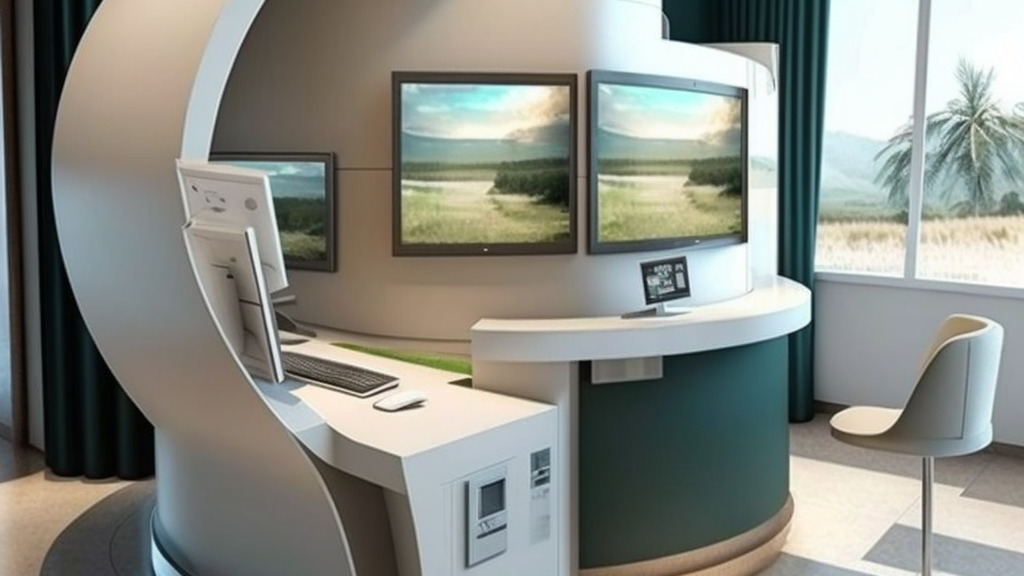
The Benefits of Automation for the Hospitality Industry
The hospitality industry is one of the most competitive and complex industries in the world. As such, it requires efficient and innovative operations to remain competitive. Automation in the hospitality industry is the use of computer and technological solutions to streamline processes, increase efficiency, and reduce costs. Automation can be used for a variety of tasks, such as managing bookings, managing inventory, processing payments, generating customer reports, and creating marketing campaigns.
The Advantages of Automation for the Hospitality Industry
Automation can help hospitality businesses increase efficiency, reduce costs, improve customer satisfaction, and optimize processes. An example of automation in a hotel is a self-check-in kiosk. Guests can use the kiosk to check in to their room, pick up key cards, and enter their room without having to interact with staff. Here we will explore the various advantages of automation for the hospitality industry, and how businesses can leverage it to stay ahead of the competition.
- Improved Efficiency: Automation can improve operational efficiency in a number of ways. Automated processes can help streamline operations, reduce the time needed to perform tasks and free up staff for other tasks. For example, automated booking processes can reduce the time needed to book and confirm reservations, allowing staff to focus on customer service. Automated check-in and check-out processes can also reduce the time needed to attend to guests, allowing staff to focus on other tasks.
- Enhanced customer service is another benefit of automation in the hospitality industry. Automated processes can provide customers with more personalized and timely service. Automation can also enable businesses to track customer preferences and tailor services accordingly. Read more about the future of hospitality design here.
- Cost Savings: Automation can also reduce labor costs and operational expenses. Automated processes can help reduce the number of staff needed to perform certain tasks, such as booking and check-in, reducing labor costs. Automation can also reduce the costs associated with operating systems and software, such as hotel management software.
- Safety and Security: Automation can also help improve safety and security in the hospitality industry. Automated systems can help protect customer data and ensure data security. Automated systems can also help improve food safety by automating food preparation processes and monitoring temperatures.
- Improved Customer Experience: The use of automation can also help improve the customer experience in the hospitality industry. Automation can help improve the quality of service by reducing the time needed to perform tasks and providing more personalized services. Automation can also help increase customer loyalty by providing more personalized services and offering more tailored products and services.
Challenges to Automation in the Hospitality Industry
While automation can provide many benefits, it also presents some challenges for hospitality businesses. These include the cost of implementation, the need for training and updating, and the risk of human error.
- Cost of Implementation: Automating processes and systems can have a large upfront cost for hospitality businesses. This includes purchasing equipment, software and technology, as well as the cost of hiring qualified personnel to install and maintain the technology. Additionally, if the business is already using an outdated system, there may be additional costs associated with transitioning to a new system.
- Need for Training and Updating: Automation requires personnel to be trained in order to use the technology properly. This can be a time-consuming and costly process, as employees must be trained not only on how to use the system, but also on any updates that may come with it. Additionally, automation systems may need to be updated regularly in order to keep up with industry trends and customer needs.
- Risk of Human Error: Automation systems are only as good as their programming and the data they are given. If the system is not programmed correctly, or if the data is inaccurate, the system may produce incorrect results. Additionally, human error can occur if personnel do not use the system correctly. This can lead to incorrect customer data or incorrect orders being placed.
Automation has the potential to revolutionize the hospitality industry and provide businesses with improved efficiency, cost savings, safety and security, and improved customer experience. Automation can help streamline processes, reduce labor costs and improve customer service. Furthermore, automation can help improve the safety and security of customer data and food preparation processes. Automation can also help enhance the customer experience by providing more personalized services and tailored products and services.
Automation in the hospitality industry is the use of computer and technological solutions to streamline processes, increase efficiency, and reduce costs. Automation can be used for a variety of tasks, such as managing bookings, managing inventory, processing payments, generating customer reports, and creating marketing campaigns.
An example of automation in a hotel is a self-check-in kiosk. Guests can use the kiosk to check in to their room, pick up key cards, and enter their room without having to interact with staff.
Automation also presents some challenges for hospitality businesses. These include the cost of implementation, the need for training and updating, and the risk of human error.